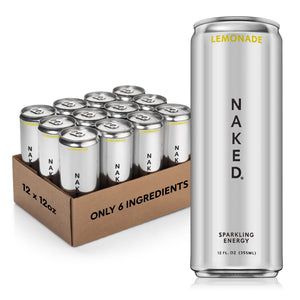If you work out first thing in the morning, you may want to take creatine on an empty stomach. There is nothing wrong with taking creatine on an empty stomach, but doing so can cause stomach issues.
Key Takeaways:
- It is safe to take creatine on an empty stomach.
- Creatine can cause digestive symptoms such as bloating, nausea, and gas, particularly if taken on an empty stomach.
- Studies are mixed regarding the best time to take creatine, so it often comes down to personal preference.
Creatine is one of the most popular sports supplements for athletes looking to improve strength, build muscle, and enhance recovery after strength training or high-intensity workouts.
Keep reading to learn how to optimize your creatine intake to support strength and muscle gains.
Can You Take Creatine on an Empty Stomach?
The short answer is yes, you can take creatine on an empty stomach and some athletes do take creatine first thing in the morning without consuming any other food or take creatine while intermittent fasting.
However, studies have found that taking creatine with a high-carbohydrate meal can help to increase the absorption of creatine in your muscles.
This means that taking creatine on an empty stomach may potentially compromise how much creatine your muscles are actually able to use, and that you’d be better served taking creatine with some form of carbohydrates, whether with foods like banana, oatmeal, or sweet potato, or supplements like a protein bar with carbs or sports drinks.
Is There a Risk of Digestive Discomfort From Creatine on an Empty Stomach?
Yes, according to Mount Sinai, some people find that taking creatine on an empty stomach causes digestive symptoms such as bloating, nausea, gas, diarrhea, and indigestion.
Does Creatine Break a Fast?

Athletes practicing intermittent fasting diets often ask: “Will creatine break a fast?”
Opinions are mixed regarding whether taking creatine breaks a fast.
The general consensus is that staying under 50 calories will still keep your body in a state of metabolic ketosis, especially if the majority of those calories are not carbohydrates.
Creatine supplements primarily provide protein, so if you choose a clean creatine powder without added sugars or carbs, and you stay under 50 calories, creatine won’t break a fast.
However, 50 calories of protein may not be a full serving of creatine powder, depending on your creatine supplement.
Each gram of protein provides approximately 4 kcal, so 50 calories worth of protein is roughly 12.5 grams of protein.
You will need to look at the nutrition facts label to determine the serving size you can have if you want to stay under this threshold.
That said, there is a lack of definitive scientific evidence pointing to a set number of calories that breaks a fast, so you don’t necessarily need to be beholden to this number.
Can You Mix Creatine With Coffee?

It is safe to take creatine with coffee as creatine is not a stimulant.
However, keep in mind that both caffeine and creatine are diuretics, which means that they increase urine output and can be dehydrating.
Make sure to drink plenty of fluid to offset the risk of dehydration when taking creatine with caffeine.
When to Take Creatine For Best Results?
According to a study published in the Journal of the International Society of Sports Nutrition, the timing of creatine intake does not have a significant effect on how much or how well your muscles take up creatine.
This means that theoretically, you can take creatine supplements or eat foods high in creatine any time of the day with similar results.
Most sports nutritionists agree with this statement, suggesting that athletes can use their personal preference to guide when to take creatine as there is no universal “best time to take creatine.“
This is largely because studies investigating whether it is better to take creatine before or after a workout have had mixed results.
Some studies have found that it is better to take creatine before a workout to support maximal workout performance and this better gains in the gym.
Benefits of taking creatine before a workout
Because creatine fuels muscle cells for high-intensity exercise, creatine serves as the substrate for the most rapid energy-production pathway in the body, known as the phosphagen system or the ATP–PC energy system.
Here, the “C” stands for creatine, because creatine is one of the main components of this energy system.
By supplementing with creatine, you can help ensure that your muscle cells have an ample supply of creatine to allow the muscles to produce ATP (energy) through this particular system.
Therefore, the thinking in support of taking creatine before a workout is that if it helps you generate energy faster through that ATP–PC energy system, you can likely lift more weight or have more powerful, explosive workouts.
This will theoretically stimulate your muscles to make greater adaptations.
Benefits of taking creatine after a workout

On the other hand, other studies have found that it is better to take creatine after a workout to enhance muscle growth and recovery.
Here, the thinking is that if you have a large influx of creatine right after your workout, your muscle fibers will have plenty of this protein to support muscle protein synthesis, the process that underlies muscle growth.
If you recover faster, you can also train harder with less downtime between workouts, facilitating faster gains in the gym.
How Much Creatine Should I Take Daily?
Unlike nutrients like calcium and potassium, there isn’t a specific Recommended Daily Intake (RDI) for creatine as there is for other nutrients such as calcium or iron.
The International Society of Sports Nutrition (ISSN Position Stand on the use of creatine supplementation for exercise performance states that the quickest method of increasing and maintaining muscle creatine stores is to consume approximately 0.3 grams/kg/day of creatine monohydrate for at least 3 days and then following this with 3–5 g/day thereafter.
Larger power athletes may need between 5 and 10 grams of creatine per day.
Basically, you have a “loading dose of creatine“ (which typically works out to about 20 to 25 grams of creatine per day) first to get your creatine stores up to a certain level and then most strength and power athletes will take 5 grams of creatine per day as a maintenance dose.
Creatine is typically taken in supplement form although animal proteins such as beef and chicken provide creatine.
Vegans and vegetarians may have higher needs for creatine supplements as creatine is not found in plant-based proteins.
However, the body can synthesize creatine as long as you have adequate amounts of the three amino acids that comprise this protein—methionine, arginine, and glycine.
Therefore, particularly if you are a vegan or vegetarian power or strength athlete, it is crucial to eat a well-rounded diet and consider taking a high-quality creatine supplement.
Who Should Avoid Creatine on an Empty Stomach?

Anyone who is sensitive to creatine and feels nauseous, gassy, or bloated after taking creatine should avoid taking creatine on an empty stomach.
If you do want to have creatine before a morning workout, try having your creatine supplement with a high-carb food such as a banana or bowl of oatmeal.
This may aid absorption and decrease stomach issues with creatine.
TL;DR
It is safe to take creatine on an empty stomach. However, having creatine on an empty stomach may cause digestive distress and reduce creatine uptake in muscles.
Also Read:
Can You Take Creatine Without Working Out?














